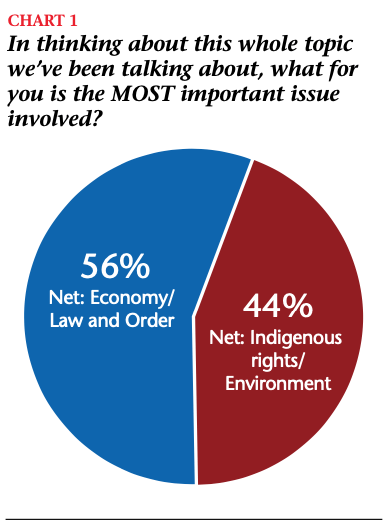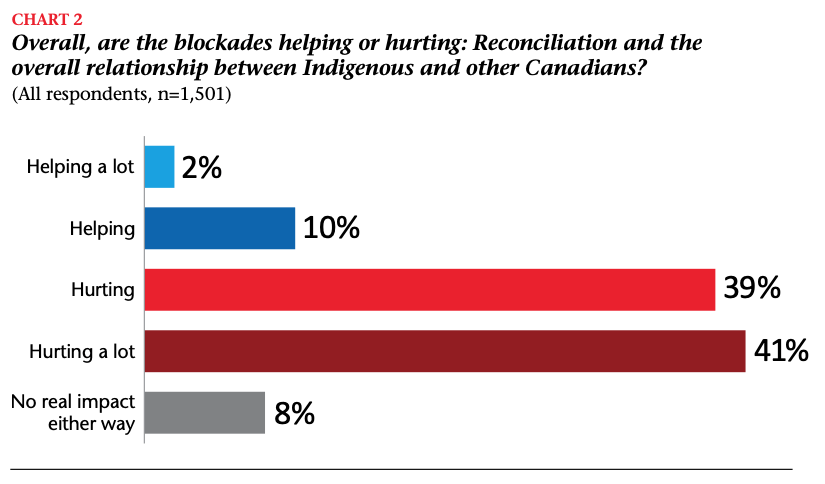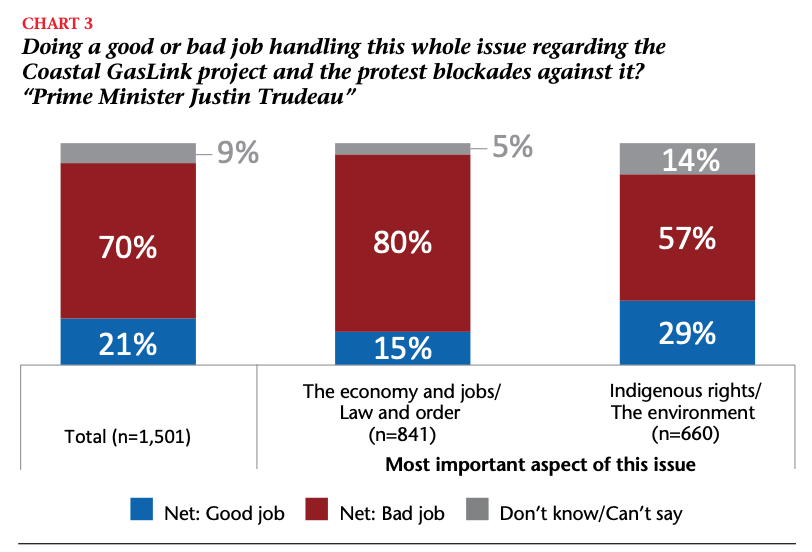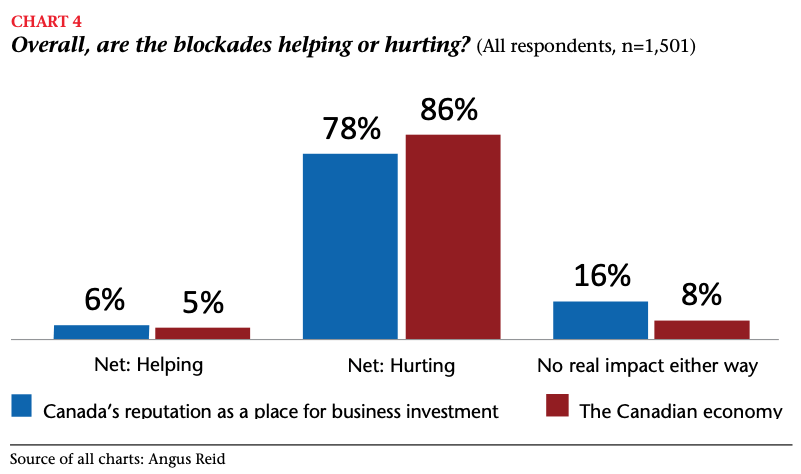A Canadian Divide Over Barricades, Pipelines and Indigenous Reconciliation
The railway blockades over pipelines have deeply damaged the Reconciliation dialogue with Indigenous peoples, and undermined the economy as well as Justin Trudeau’s leadership role as Prime Minister. Pollster Shachi Kurl shares timely Angus Reid data showing 80 percent of Canadians thought the winter crisis hurt reconciliation, 86 percent thought it harmed the economy, while 70 percent thought Trudeau did a bad job managing an admittedly difficult situation.
Shachi Kurl
 It’s as if this country was in the grips of some deep convulsion caused by our utter polarization on energy policy.
It’s as if this country was in the grips of some deep convulsion caused by our utter polarization on energy policy.
While the cycle of the erection and dismantling of anti-Coastal GasLink blockades that have clogged our ports, obstructed our rail freight and put the brakes on our passenger trains, the impact on public opinion struck a Canadian divide.
The implications for public policy discussion, and for economic outcomes, are also matters on which Canadians are sharply divided on how to handle the situation.
A new online survey by the Angus Reid Institute among 1,500 Canadians on February 25-26 found 53 percent of respondents said it was time to bring down the blockades of rail lines using force if necessary, while the other 47 percent thought patience and dialogue with pipeline opponents was the best way forward.
This was no longer just about how it all started with hereditary Wet’suwet’en chiefs opposing the Coastal GasLinks LNG pipeline project in Northeastern British Columbia, but about a nation-wide protest movement shutting down commercial and passenger rail service in large parts of the country.
These two perspectives were strongly linked to attitudinal data on what Canadians believed to be the most important aspect of the conflict—56 percent said it was the economy or the rule of law, while 44 percent said Indigenous or environmental issues were at the heart of it.
 Whatever side they were on, Canadians generally did agree on one thing—that Justin Trudeau has not handled the crisis well.
Whatever side they were on, Canadians generally did agree on one thing—that Justin Trudeau has not handled the crisis well.
Just one in five Canadians, 21 percent of respondents, thought the Prime Minister had done a good job, while 70 percent thought he had done a bad job.
Just as damaging to a leader who came to office saying that no cause was more important to him than healing with Indigenous peoples, a vast majority of Canadians thought the blockades were harmful to reconciliation.
Among our poll respondents, 39 percent thought the blockades were “hurting” reconciliation, and 41 percent found them “hurting a lot”, for a negative score of 80 percent.
Only 10 percent of Canadians thought they were “helping”, while a negligible 2 percent thought they were “helping a lot”. Barely one Canadian in 10 thought the barricades were helpful to the cause of reconciliation.
Canadians were equally down on the impact of the barricades on the economy and investment.
Fully 86 percent of poll respondents thought the barricades were “hurting the Canadian economy”, while only 5 percent thought they were helping.
 The longer-term aspect of this, the impact on Canada’s reputation as a place to invest, is seen as harmful— 78 percent thought the blockades were hurting, compared to just 6 percent who thought they were helping.
The longer-term aspect of this, the impact on Canada’s reputation as a place to invest, is seen as harmful— 78 percent thought the blockades were hurting, compared to just 6 percent who thought they were helping.
One positive result of the barricades for pipeline proponents is that support for the $6.6 billion Coastal GasLink project increased as the tensions escalated. Only two weeks earlier in a mid-February poll by the Angus Reid Institute, national support for the pipeline stood at a slim majority of 51 percent. By month’s end, support across the country had increased to a solid 61 percent.
And that was before the Wet’suwet’en hereditary chiefs and federal and provincial ministers responsible for the file finally met on February 27, the same day as the release of this poll taken the two previous days, while the argument was still ongoing in Parliament, the B.C. Legislature and among Indigenous leaders.

It will be interesting where our next survey situates us all, not just in measuring public opinion, but in terms of the issue going forward and its impact on the future of our country.
We know and understand the impacts that increasing carbon emissions have on the physical environment. Few in this country totally reject the need to reduce them.
On our investment environment, it should be a no-brainer that Canada, with all it has going for it, from our people to our resources and access to global markets, is a great place to invest.
We’ll all be watching.
Contributing Writer Shachi Kurl is Executive Director of the Angus Reid Institute, a national not-for-profit public opinion research foundation based in Vancouver.
